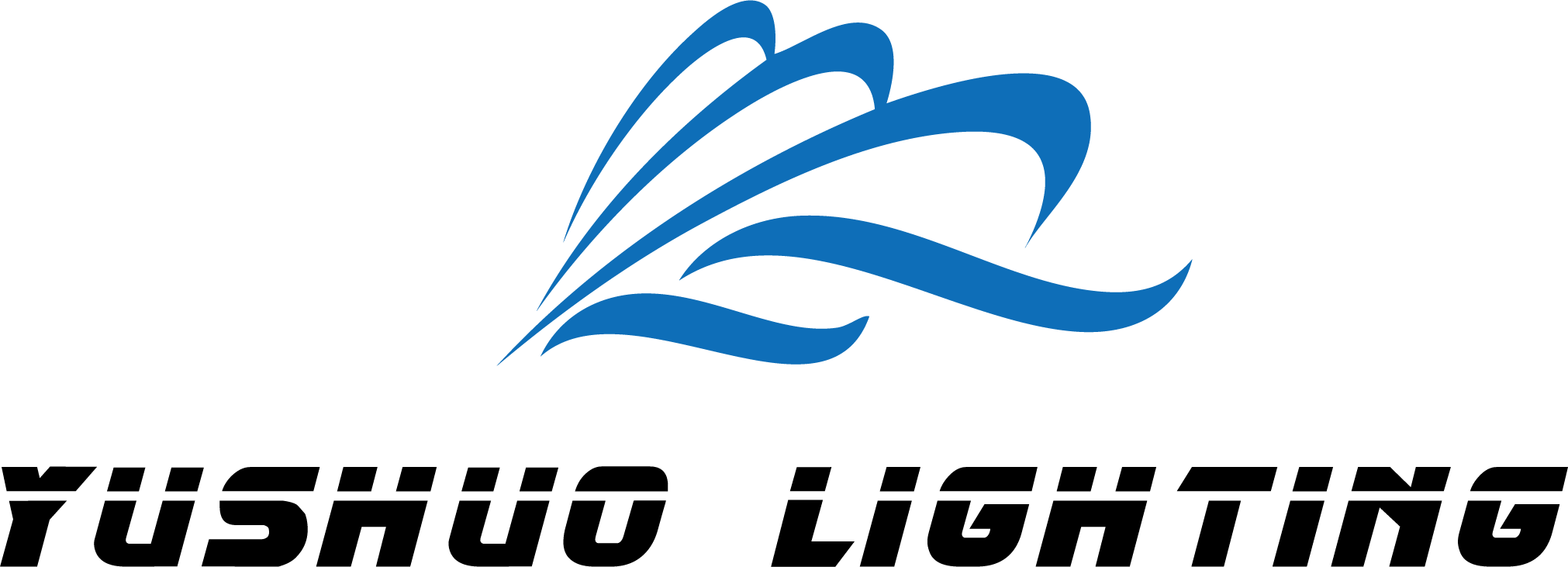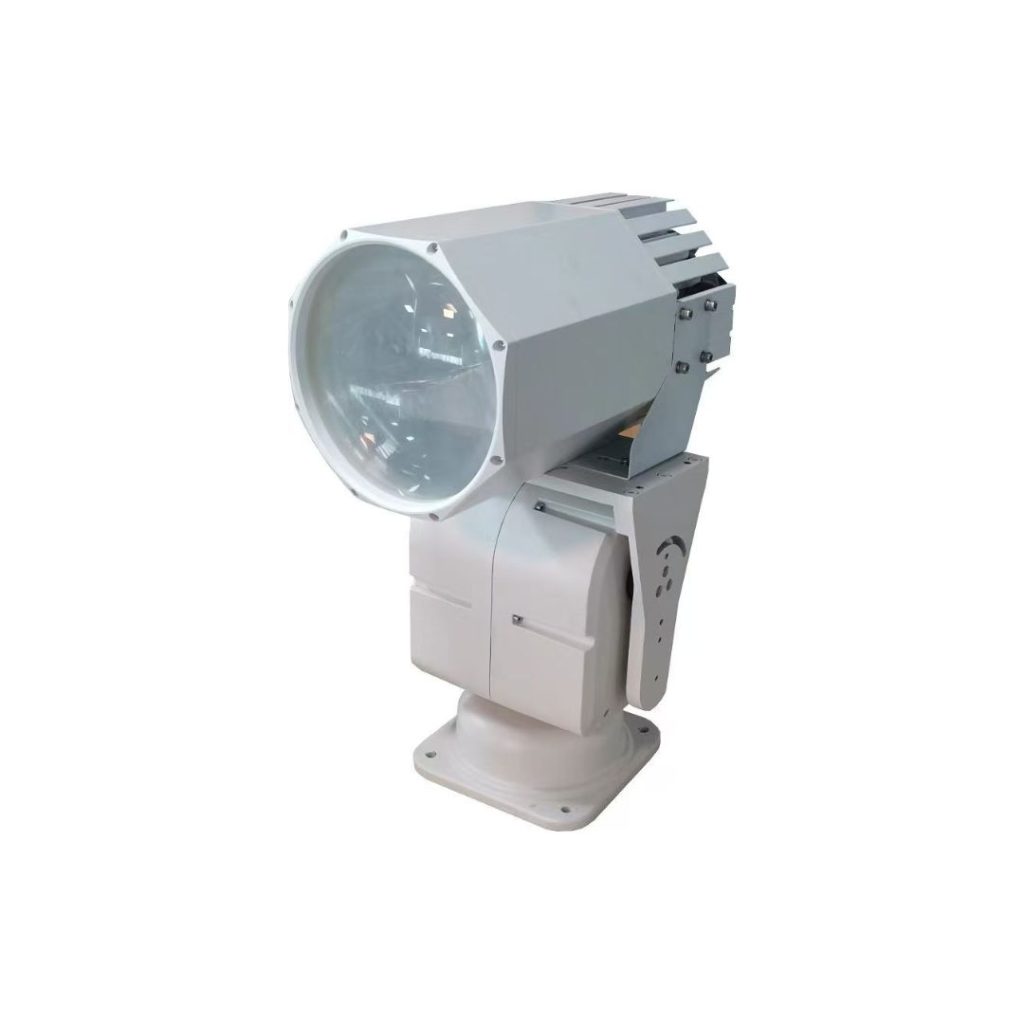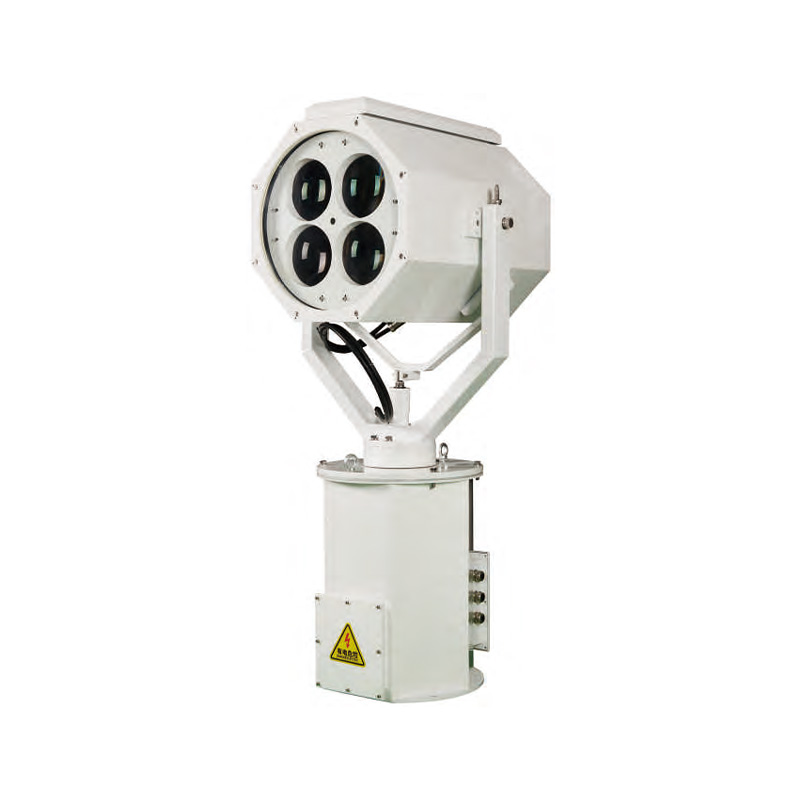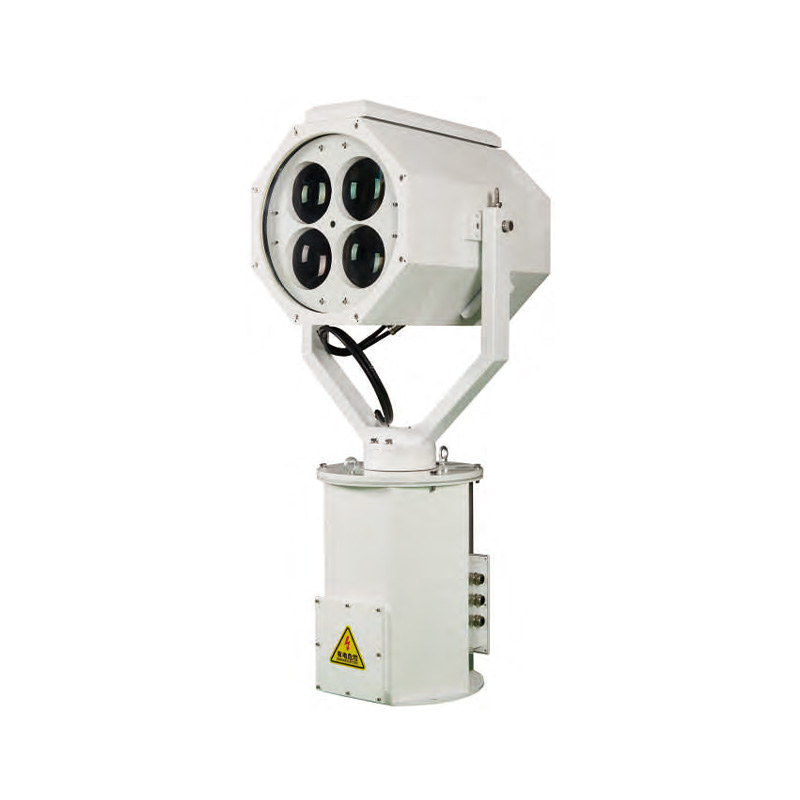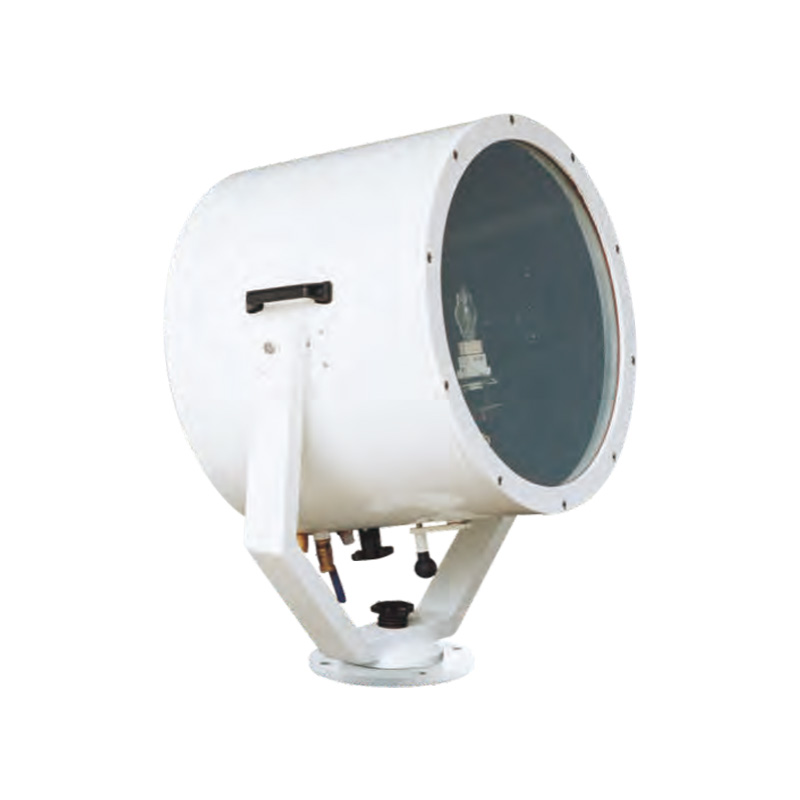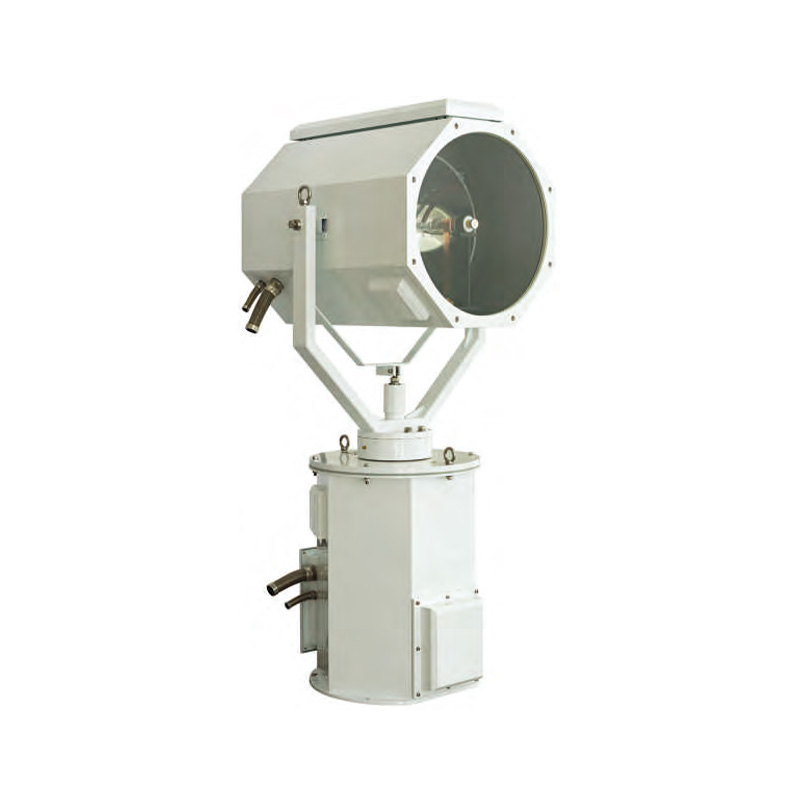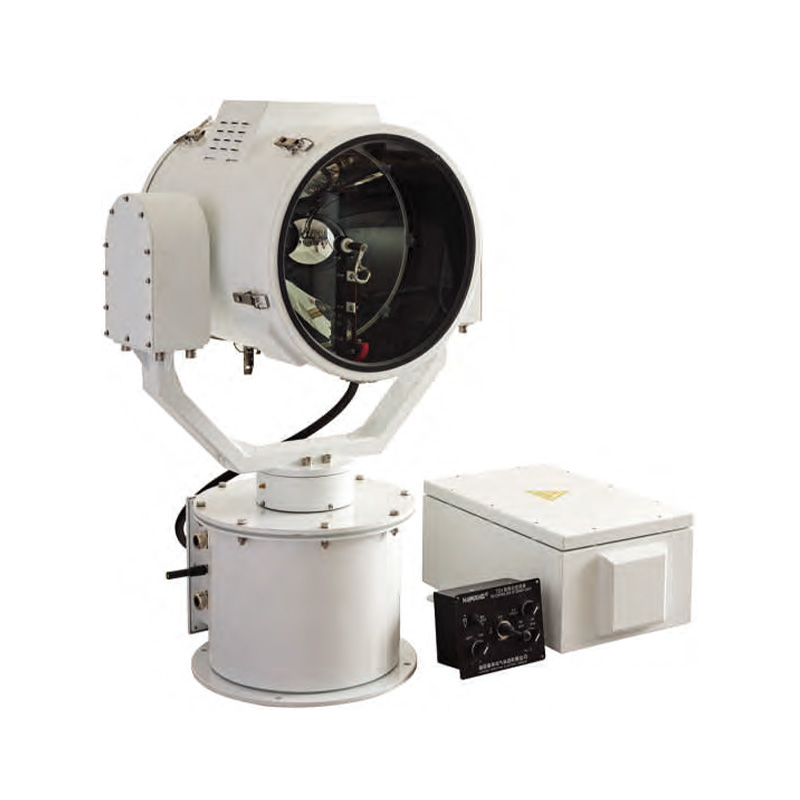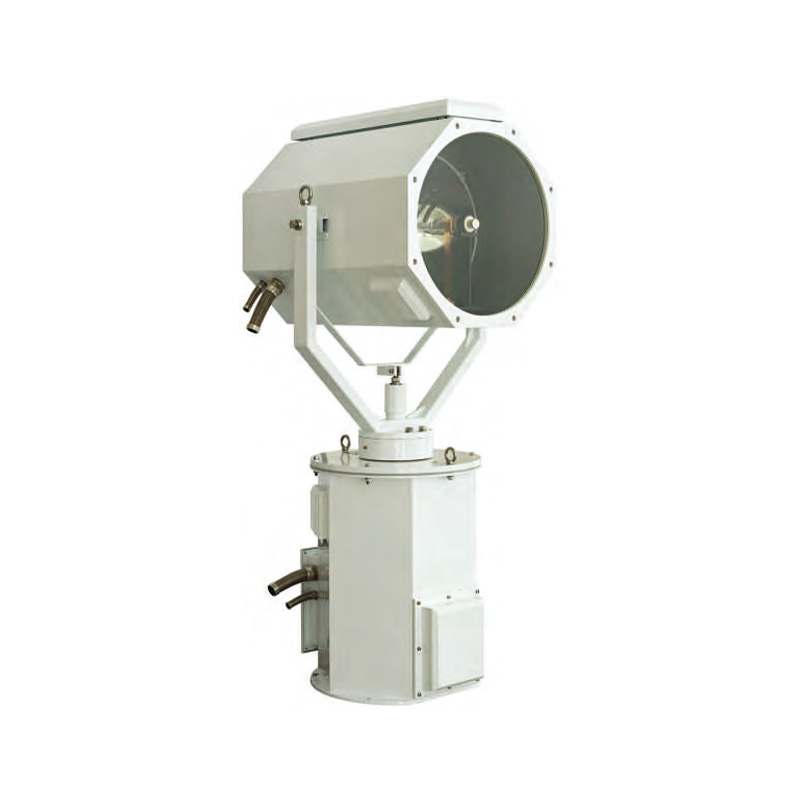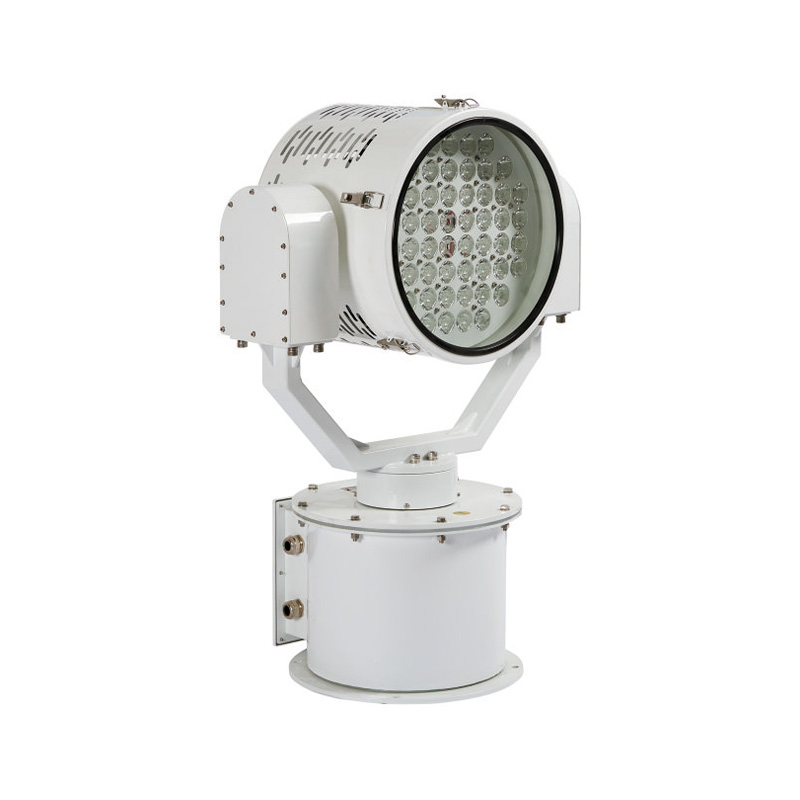Why Waterproof Performance is Crucial for Marine Searchlights
Modern cargo ships need very powerful lighting equipment for night navigation, operations near the shore, and bad weather. Marine searchlights must be able to withstand harsh conditions and be water-resistant, corrosion-resistant, and have a long range and stable light. The waterproof rating is often overlooked among many technical specifications, but it is actually a very important factor that affects how long the marine lighting fixture will last, how reliable it will be, and how safe it will be.
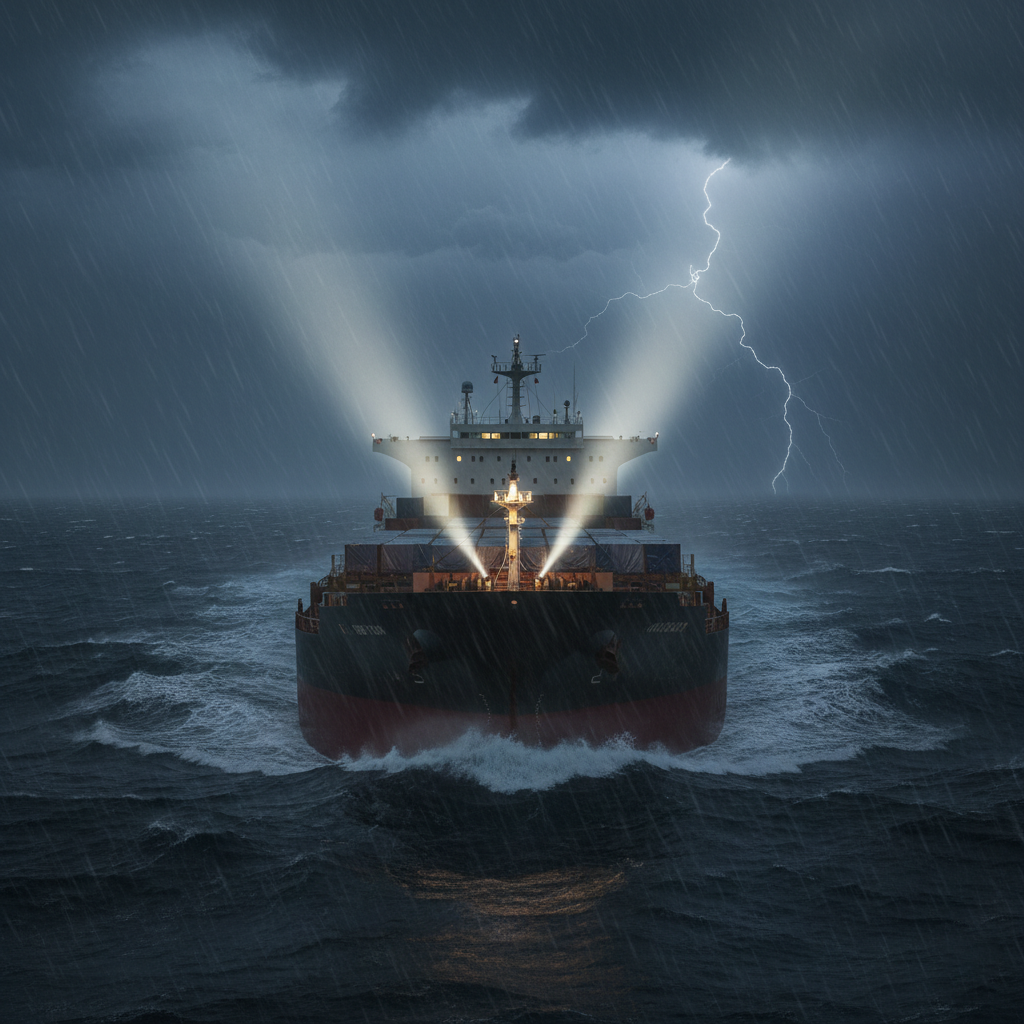
Table of Contents
How the Marine Environment Affects Marine Searchlights
Marine environments are some of the hardest places to test electrical equipment.
Marine searchlights are exposed to high humidity, salt spray, and big changes in temperature. If the light housing isn’t sealed properly, these conditions can easily cause corrosion, condensation, and short-circuiting.
Marine searchlights have to deal with more than just the occasional splash; they are constantly attacked by the sea. The light housing and seals are always wet because of the constant saltwater spray and crashing waves. This tests even the strongest materials. When cleaning the deck with high-pressure water jets, they can easily get through poorly sealed enclosures, which can cause short circuits or fogging of the lens that won’t go away. Also, quick changes in temperature between hot days and cool nights can cause condensation inside the device, which can damage circuits and make the picture less clear over time.
Also, ships work in salty marine air that is full of sodium chloride. This salty environment speeds up metal oxidation, makes gaskets weaker, and damages electrical contacts, all of which will eventually lead to equipment failure. So, waterproofing isn’t just a way to protect something; it’s the most important thing that decides if a marine searchlight will survive its first trip or last for years of reliable service.
What Waterproof Ratings Really Mean
The Ingress Protection (IP) rating set by IEC 60529 is used to rate how well something can keep water out. The first number in the code stands for dust protection, and the second number stands for water protection.
| IP Rating | Protection Level | Typical Application on Ships |
| IP65 | Dustproof + protection against water jets | Bridge and control room lights |
| IP66 | Dustproof + protection from strong water jets | Deck or mast-mounted lights |
| IP67 | Dustproof + protection from temporary immersion (up to 1 m) | Exposure to heavy rain or waves |
| IP68 | Dustproof + protection against continuous immersion | Offshore platforms or rescue vessels |
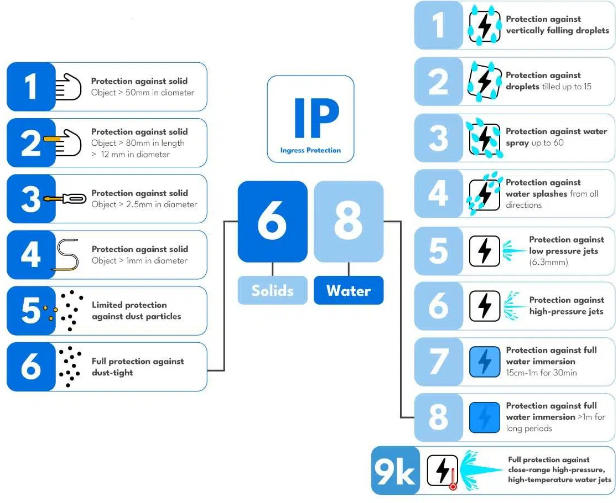
If a marine searchlight isn’t waterproof enough, the risks go beyond just breaking down. They can put the safety, efficiency, and lifespan of both the boat and its crew at risk.
Risks of Having Bad Waterproof Performance
If a marine searchlight isn’t waterproof enough, the risks go beyond just breaking down. They can put the safety, efficiency, and lifespan of both the boat and its crew at risk.
System Failure and Electrical Short Circuits
Marine searchlights use high-voltage electrical parts, and when water gets into the housing through poorly sealed joints or cable glands, it can cause power surges or short circuits. Not only does this burn out internal circuits and LEDs, it can also trip breakers or damage navigation systems that are connected. In very bad cases, short circuits can even start fires on the deck, which is a big danger on ships with limited space.
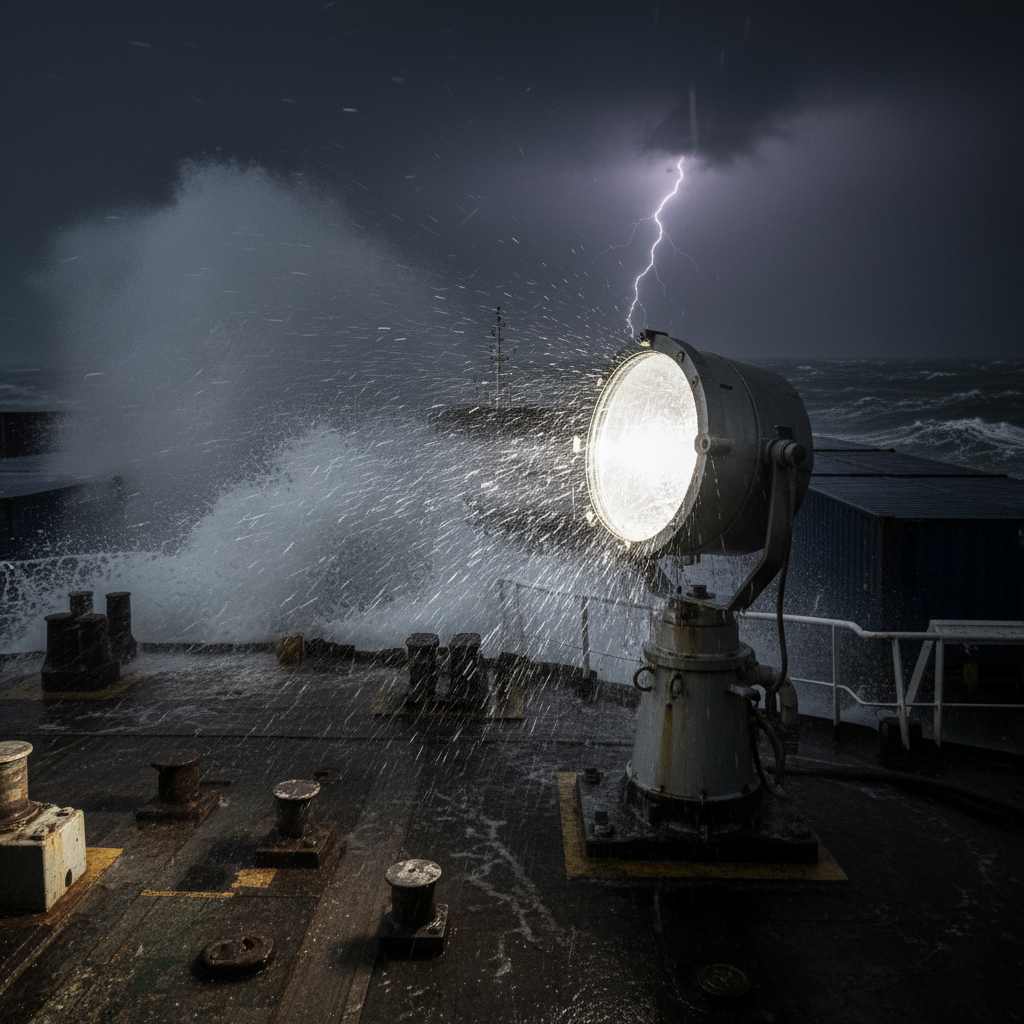
Less Visibility During Important Tasks
Fogging and condensation happen when moisture gets inside the lens or reflector area. This makes the beam much less bright and clear. This makes it harder to see at night, when clear light is important for navigation, docking, or search-and-rescue missions. Poor lighting at these times can make it harder to move quickly, raise the risk of collisions, or slow down emergency response times.
Faster Corrosion and Material Fatigue
Saltwater intrusion exposes metallic and electronic parts to electrochemical corrosion, which degrades connectors, reflectors, and LED modules. Without the right sealing and protective coatings, even stainless steel and aluminum alloys can rust over time. As corrosion gets worse, it makes structures less stable, which can cause the light to shake loose or fall off in rough seas.
Costs of Maintenance and Downtime
If a light isn’t properly waterproofed, it may need to be checked, replaced, or repaired often, especially on boats that work in humid or tropical areas. The cost of replacing a broken unit, plus the time lost during voyages, can be much higher than the cost of buying a high-quality, IP-rated searchlight in the first place. For business fleets, this kind of downtime means shipments are late and costs go up.
Risks to crew safety and compliance
The International Maritime Organization (IMO) says that ships must have enough light for safe navigation and work areas. If water gets into a searchlight and it doesn’t work or works poorly, it could lead to fines for not following the rules during an inspection or, even worse, put the crew’s safety at risk during nighttime or emergency operations.
In short, a marine searchlight that isn’t waterproof is a major safety hazard, not a small flaw. When choosing lights for boats that work in unpredictable ocean conditions, it’s best to go with ones that have at least an IP67 or IP68 waterproof rating. Yushuo’s marine-grade searchlights are a good example of this. They are reliable, require less maintenance, and are safe in all weather conditions.
Advantages of Waterproof Marine Searchlight
When a marine searchlight is built to be more waterproof, it does more than just keep seawater out; it also makes every voyage safer, more reliable, and more efficient.
Works Well Even in Bad Weather
A searchlight with an IP67 or IP68 waterproof rating can withstand heavy rain, salt spray, and temporary submersion, ensuring continuous illumination even during storms or rough seas. Whether the ship is navigating through tropical monsoons or icy waters, the light’s sealed construction prevents internal moisture buildup, guaranteeing consistent brightness and stable performance when it’s needed most.
Longer Service Life and Lower Costs for Maintenance
Waterproof models are safe from rust, condensation, and dust getting in, which are the main reasons why marine lights fail early. These lights last longer and need less maintenance because they protect LEDs, reflectors, and wiring from damage inside. Over time, this saves a lot of money, especially for large cargo fleets where every hour of maintenance can mean lost revenue.
More Safety and Visibility
A marine searchlight that is well-sealed keeps its best optical clarity and beam distance, even after being in salt and humidity for a long time. This makes it easier for crews to see obstacles or dangers when they are navigating, docking, or rescuing. In an emergency, this kind of dependability can mean the difference between a safe recovery and a major failure.
Resistance to Corrosion and Structural Degradation
Marine-grade waterproofing keeps water out and protects against salt and chemical corrosion. High-end models, like Yushuo YS-T2L Marine Searchlight, have marine-grade aluminum housings, anti-UV coatings, and silicone sealing rings that keep the mechanical parts from breaking under high pressure and constant vibration. The result is a fixture that works well even after being at sea for thousands of hours.
Standards for Compliance and Professionalism
Marine gear that has been tested and passed IEC 60529 or IMO maritime standards for waterproofness meets international safety and performance standards. This makes ship owners feel better during port inspections and certification audits, which helps a company build its reputation for safety and professionalism.
In short, a waterproof marine searchlight is not just a piece of hardware; it’s also a way to make sure that your crew is safe and that the searchlight will last for a long time. If you want to make sure your boat is always well-lit, compliant, and ready for any ocean condition, choose a fully sealed, corrosion-resistant searchlight from a trusted brand like Yushuo Lighting.
How to Pick the Best Marine Searchlight That Is Waterproof
| Selection Criteria | What to Look For | Recommended Value |
| Waterproof Rating (IP) | IP66 or higher for deck installations | IP67+ preferred |
| Material | Stainless steel / Marine-grade aluminum | Corrosion-resistant |
| Lens Type | Tempered glass, sealed with silicone | Anti-fog, impact-resistant |
| Operating Temperature | –30 °C ~ +55 °C | Suitable for extreme weather |
| Mounting Type | Fixed / Remote-control / Manual | Based on vessel type |
| Maintenance Access | Replaceable LED module, gasketed housing | Easy field maintenance |
Conclusion
In the unpredictable world of marine operations, a searchlight is more than just a light; it’s a promise of safety.
The waterproof performance has a direct effect on how long something lasts, how safe it is, and how much it costs to own.Pick brands you can trust, like Yushuo Lighting, whose waterproof engineering makes them last a long time even in the worst sea conditions.
